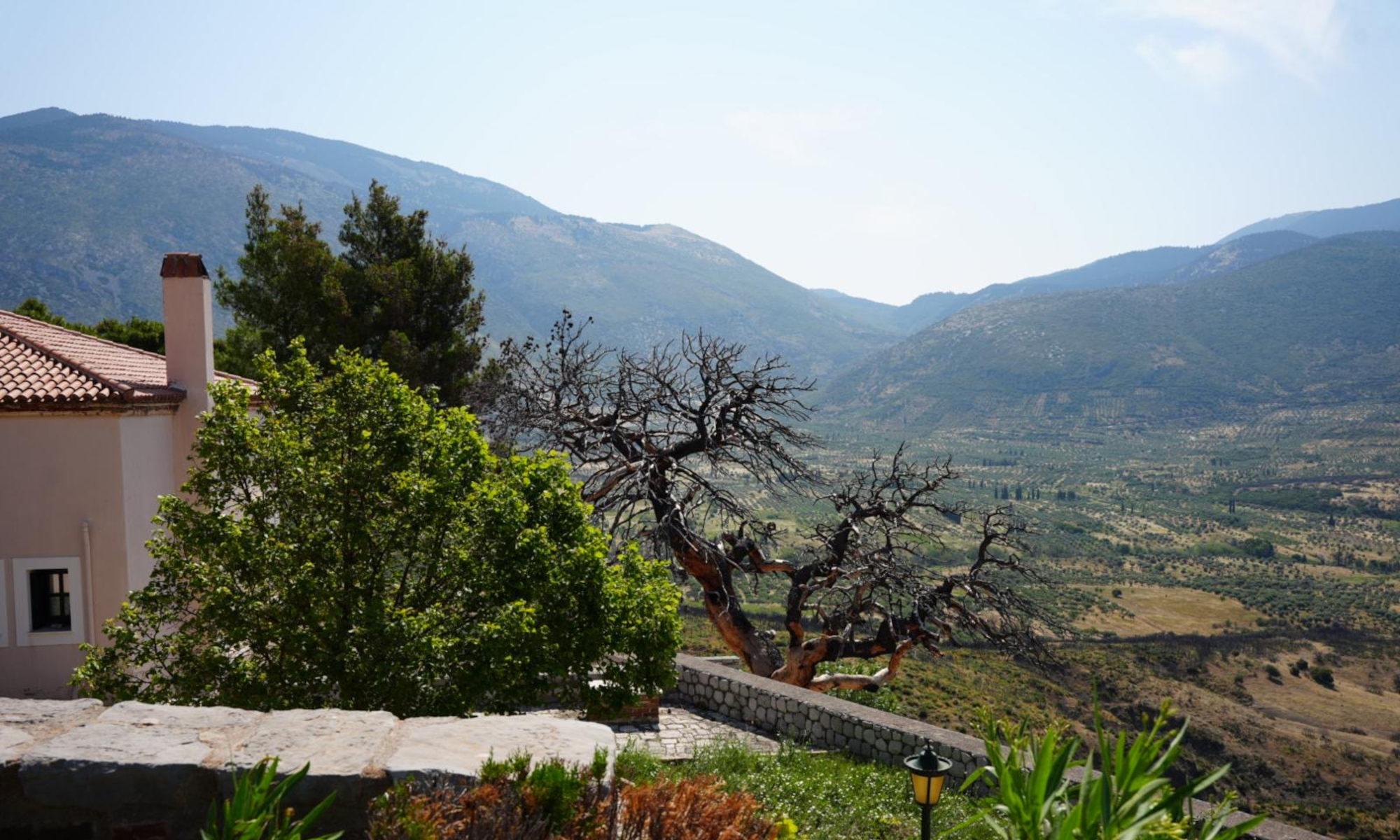by Annalisa Jenkins
A bulwark between the city and the mountain, The Volunteer Forest Protection and Firefighting Team of Ilioupoli is at the end of the road, literally on the frontline of climate change. As unprecedented heat and drought bring intensifying wildfires to Greece, the volunteers of Ilioupoli struggle to protect their forest under the command of a government that volunteers say doesn’t prioritize the preservation of unbuilt environments.
The Hellenic Fire Service, volunteer firefighter Maria Arva said, has three tiers of importance: human lives; then property; and finally nature. She agrees that human lives must be protected first, but gets frustrated when people build homes in fire-prone forests, and expect them to be prioritized over the nature that drew them there. For Arva, “You have to save lives. You have to save priority properties. But the forest is the most important for us.”
As wildfires intensify around the country, Greek fire response has focused on fire suppression rather than prevention. Faced with growing, harder to extinguish fires and the destruction of their land, some underfunded but dedicated volunteer firefighters like Arva have taken the work of wildfire prevention into their own hands.
The Greek branch of the World Wildlife Fund insists that a transition to fire prevention is essential. “We need to do things and activities in the forest to prepare them for summer, in order for them to be more resilient,” Panagiota Maragou, the Head of Conservation at the World Wildlife Fund Greece said. The chapter recently prepared a legislative proposal to use prescribed burns as a tool for fire prevention.
Cutting off low-hanging branches of trees and removing dead wood and underbrush would make forests less flammable, Arva said, making for easier wildfire seasons. The only problem is that it’s illegal.
By doing so anyway, the Ilioupoli team helped save the area in a 2015 wildfire, Arva said; flames didn’t reach the branches of the trees and, though they charred, they didn’t ignite, stopping further spread.
“We look at the mountain and see nothing but black,” volunteer firefighter Maria Arva said last week, with Athens’ Mount Hymettus looming behind her. The station was formed after a 1998 fire devastated the mountain, killing four. The 2015 fire was the second to rip down the same path. Blackened remains of pine trees still dot the hillside.
Arva is a journalist at the Greek TV station ANT1, but each summer, from May 1st to October 31st, she spends her free time fighting wildfires. The firehouse is a small wooden cabin with plump couches, a large television, and children’s art decorating the walls. Off the main living room is a radio system and several monitors, one showing footage from a nearby watchtower. Two white storage containers covered in graffiti stand outside, one with bunk-beds for late shifts, and one with personal equipment.
There isn’t a parking lot at the station; its two municipality-owned fire engines park at the end of the road. This is the first summer the trucks will live there full-time. Until this year, volunteers picked them up from the local Hellenic Fire Station each morning when the station opened, and dropped them back off at night. The team doesn’t have enough committed volunteers to staff the station all day, or all year.
Because the team doesn’t own their trucks, they can’t repair them, and Arva says that the municipality doesn’t treat them well. “They didn’t care for them, and practically they didn’t care about our lives being in that car.” The station’s main engine is from 1992, and each year of wear is evident in its dull exterior. Besides the trucks, the station otherwise relies entirely on donations for equipment.
Arva says the mountain cannot survive another fire. Pine trees don’t spread fertile seeds until they are twelve to fifteen years old, she said, and the regrowth from the 2015 fire is not yet mature enough to reproduce. “We will do whatever it takes not to be burned again,” Arva said. “It’s you do it” or the mountain is “destroyed forever.”
